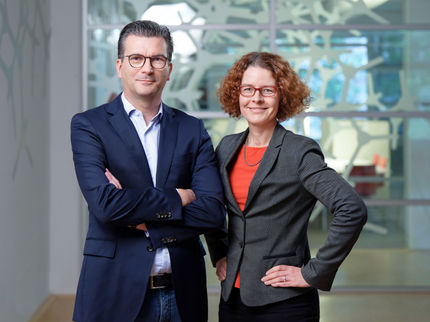Recycling pioneer matterr builds plant at chemical park
Location expands its focus on the circular economy
Advertisement
The recycling company matterr is relocating to the Knapsack Chemical Park and will build a small-scale industrial depolymerization plant with an annual capacity of around 10,000 tonnes at the Hürth site
. The plant marks an important step towards a fossil-free, recycling-oriented PET industry. The establishment of the plant marks another milestone in the site's transformation towards a circular economy. The ground-breaking ceremony is planned for 2026. Around 30 people will work at the new plant.
Innovative recycling technology for polyester waste
matterr's patented depolymerization process converts complex, mixed PET waste - such as mixed fabrics and multilayer packaging - into its original primary materials under atmospheric pressure. After purification, these can be processed into new products in existing polyester production plants, completely replacing fossil raw materials from petrochemical processes. For its production, the company will use the existing Verbund structure in Knapsack and source individual materials from local plant operators.
"The Chemical Park Knapsack is the ideal location for us: with its clear focus on promoting the circular economy, it fits perfectly with our approach," says Melanie Hackler, CEO of matterr. "Together with YNCORIS, we are creating the basis here for a future-oriented, circular PET industry that is independent of fossil raw materials. At the same time, we want to prove that our approach
is economically viable and can set new standards for sustainable supply chains in various industries."
Transformation is progressing
The Chemical Park Knapsack has been developing towards a circular economy for several years. matterr is already the third company at the site to dedicate itself to recycling. "Our plan was and is to locate process plants in the Chemical Park Knapsack that maintain the material network with sustainable production and strengthen the local circular economy," says Ralf Müller, CEO of YNCORIS, which operates the Chemical Park. "matterr is an excellent fit for the site with its extensive expertise and advanced solution."
Last year, LyondellBasell already secured a large area in the new Hürth-Süd section of the plant to build an integrated recycling and processing center for plastic waste. Palurec has been successfully recycling beverage cartons at a plant in the Knapsack Chemical Park since April 2021. In addition, steam can be generated from waste that can no longer be recycled at the substitute fuel power plant, which has been in operation since 2009. This steam is in turn an important part of production at the site.
For Christoph Kappenhagen from the YNCORIS management team, matterr is a prime example of industrial sustainability: "The relocation shows that we will never stand still at this traditional site, but will actively shape its strategic development. We want to offer people here long-term prospects. To this end, we rely on technological innovation and close
cooperation with the companies in the Chemical Park Knapsack."
Progress for the circular economy and industry
By scaling up, matterr wants to prove that fossil-free circular economy solutions work on an industrial scale and set a new standard for sustainable supply chains in various industries. For Benjamin Rump, COO of matterr, the major challenge is still to implement an efficient and scalable
recycling process: "This is exactly what we have developed at matterr. With the new industrial plant, we are demonstrating that our depolymerization process works on an industrial scale - reliably and with high process stability. We benefit from the experience of YNCORIS, which supports us in setting up and connecting to the infrastructure. This partnership is a decisive factor for the successful step from pilot scale to industrial implementation."
Note: This article has been translated using a computer system without human intervention. LUMITOS offers these automatic translations to present a wider range of current news. Since this article has been translated with automatic translation, it is possible that it contains errors in vocabulary, syntax or grammar. The original article in German can be found here.
































































